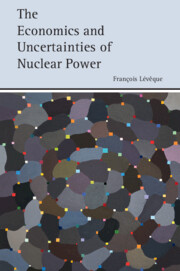Book contents
- Frontmatter
- Contents
- List of Abbreviations
- Introduction
- Part I Estimating the costs of nuclear power
- Part II The risk of a major nuclear accident
- Part III Safety regulation
- Part IV National policies and international governance
- Ten Adopting nuclear power
- Eleven Nuclear exit
- Twelve Supranational governance
- Thirteen International governance to combat proliferation
- Conclusion
- Notes
- Index
Thirteen - International governance to combat proliferation
Politics and trade
Published online by Cambridge University Press: 05 January 2015
- Frontmatter
- Contents
- List of Abbreviations
- Introduction
- Part I Estimating the costs of nuclear power
- Part II The risk of a major nuclear accident
- Part III Safety regulation
- Part IV National policies and international governance
- Ten Adopting nuclear power
- Eleven Nuclear exit
- Twelve Supranational governance
- Thirteen International governance to combat proliferation
- Conclusion
- Notes
- Index
Summary
The proliferation of nuclear weapons is a collective security issue, but microeconomics does not throw much light on efforts to manage this particular global public good, and the associated pitfalls. Political analysis and the application of game theory seem more helpful for understanding rivalry between states and their various strategies. Much has been written on global politics and strategy, and more specifically on the arms race between the Soviet Union and the United States, followed by de-escalation. We shall consequently not address the rising number of warheads deployed by nuclear powers, referred to as vertical proliferation. Its only connection with the economics of nuclear power is historical.
On the other hand, horizontal proliferation – the acquisition of nuclear weapons by countries not previously armed – is linked to the development of this energy. We have already cited the example of Pakistan, which has used civilian nuclear power as cover. We have also noted the utopian attitude of advocates of the Atoms for Peace doctrine, who believed that help with developing nuclear power could contribute to preventing widespread nuclear armament. This form of proliferation, by the gradual spread of nuclearized territory all over the planet, is linked to trade. The larger the number of new countries adopting nuclear power, the greater the risk of proliferation. The vast majority of the countries which currently own nuclear power plants have certainly refrained from developing military applications, but there is no technical obstacle to them doing so in the future. They already have the fissile materials, and the necessary scientific and engineering skills. Japan, Brazil or indeed South Korea could very rapidly become nuclear powers. Nations on the verge of deploying nuclear power, such as Turkey or the United Arab Emirates, could start by abstaining, then change their minds. It is also interesting to note that many of today's aspiring nuclear-power nations display features which justify fears of further proliferation. Compared with the countries already exploiting this technology, they are, on average, characterized by more widespread corruption and greater political instability, weaker democratic institutions, higher crime rates and more frequent terrorist attacks. All these factors potentially increase the risk of nuclear power being diverted for military ends.
- Type
- Chapter
- Information
- The Economics and Uncertainties of Nuclear Power , pp. 265 - 295Publisher: Cambridge University PressPrint publication year: 2014



